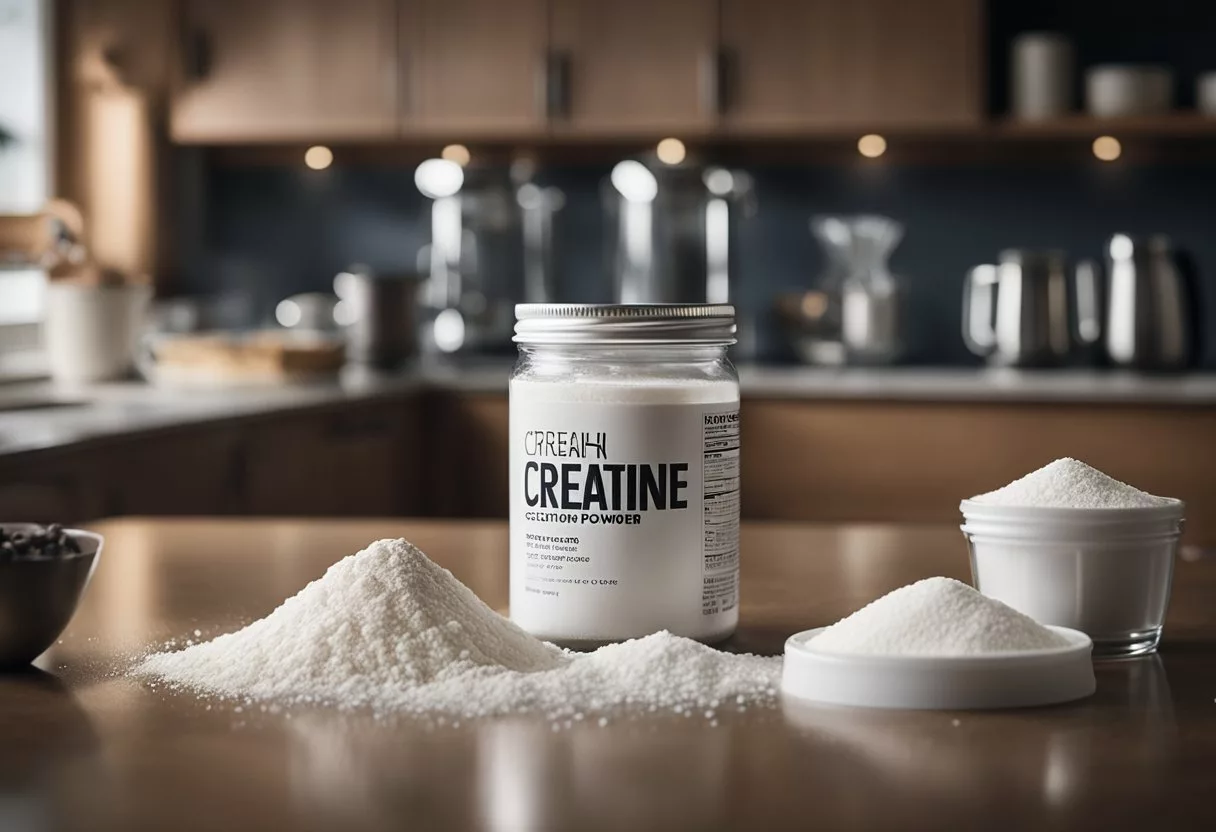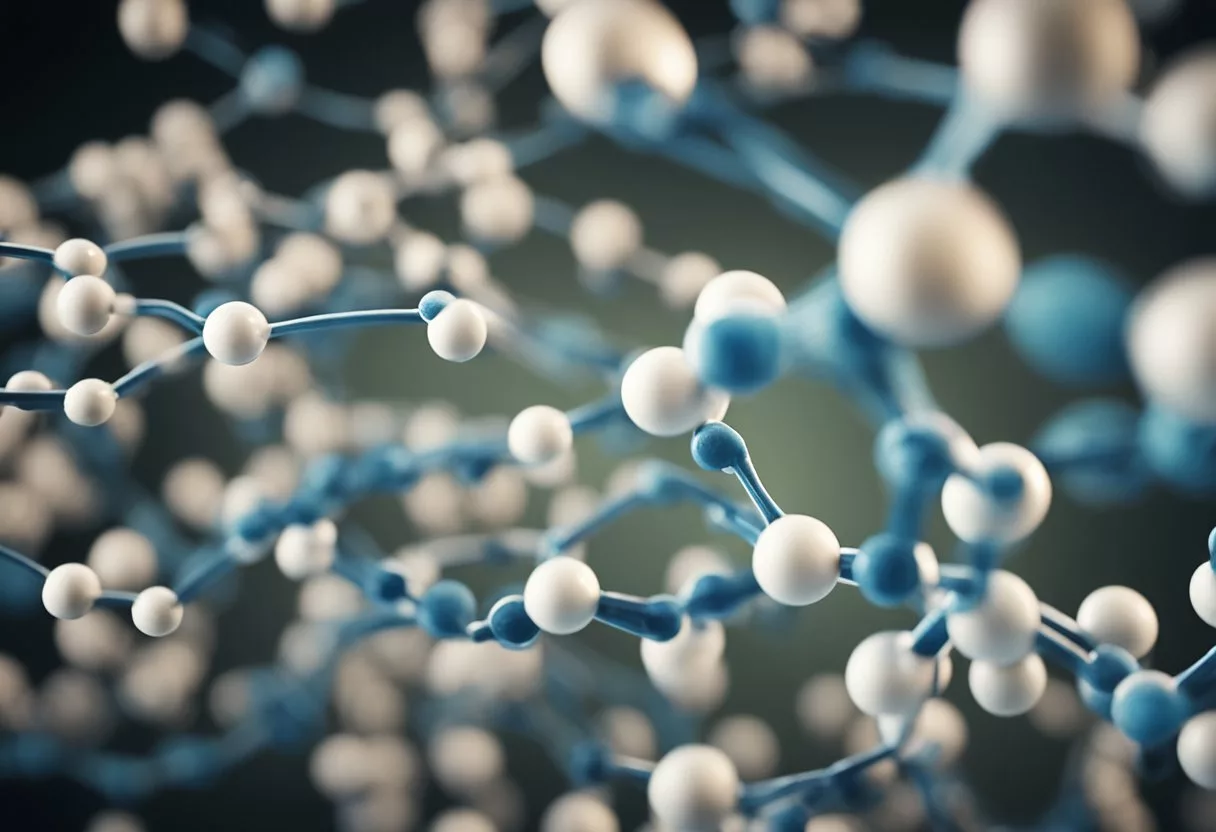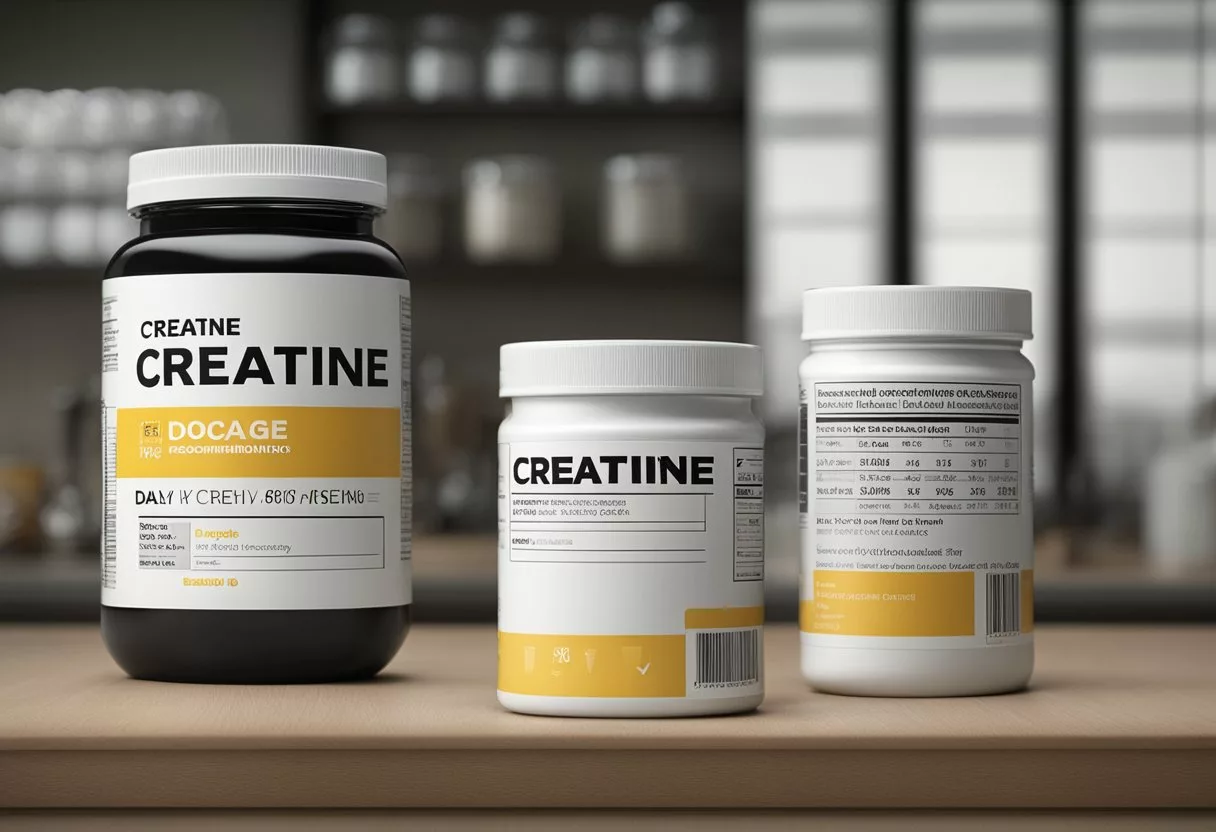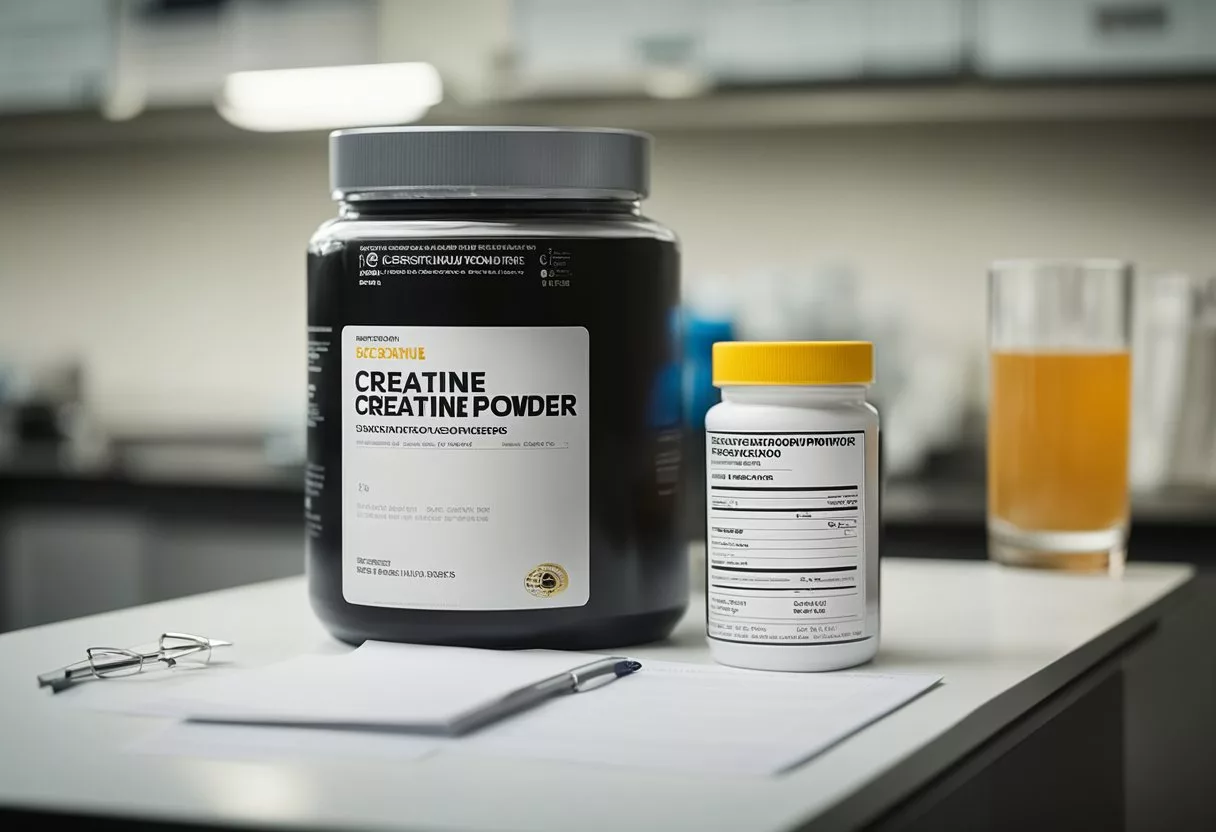Taking creatine every day has become a popular regimen among athletes, bodybuilders, and individuals looking to enhance their physical performance and muscle mass. Creatine, a naturally occurring compound found in muscle cells, helps the body produce energy during high-intensity exercise and heavy lifting.
While the body can synthesize creatine from amino acids and also obtain it from protein-rich foods like red meat and seafood, many people opt for supplementation to increase their creatine stores.
This daily supplementation can lead to an increase in the compound within the muscles, potentially leading to improved strength, enhanced muscle growth, and better overall athletic performance.
However, the effects of daily creatine intake are not limited to muscle and performance gains. Research indicates that creatine may also have neurological benefits and could play a role in cognitive function.
While it is largely considered safe, understanding the proper usage and potential side effects is crucial for anyone considering daily creatine supplementation.
Monitoring the body’s response and consulting with healthcare providers can help ensure that creatine is used effectively and safely.
Key Takeaways
- Creatine supplementation can enhance physical performance and muscle mass.
- Daily intake of creatine may also have neurological benefits.
- Proper usage and awareness of potential side effects are essential for safe supplementation.
Understanding Creatine

Creatine is a key player in energy production within the human body, particularly within muscle cells. Its role in enhancing athletic performance and its presence in both food and dietary supplements make it a topic of interest for many.
What Is Creatine?
Creatine is a naturally occurring compound synthesized from amino acids in the liver, pancreas, and kidneys. It’s critical for storing and providing energy for muscle contractions.
In the human body, it is predominantly stored in muscles, but a small percentage is also found in the brain.
Natural Sources of Creatine
The natural sources of creatine include fish and red meat. Vegetarians might have lower creatine stores because they exclude these common sources from their diet.
Although some is present in milk, obtaining significant amounts of creatine from a vegetarian diet alone is more challenging.
Creatine Supplements versus Food
Creatine supplements provide a concentrated dose of creatine, which might not be attainable through food consumption, especially for vegetarians.
While the body can produce about 1 gram of creatine per day, supplements can significantly exceed this, offering benefits for muscle energy production and potentially athletic performance without requiring large quantities of red meat or fish.
Mechanism of Action

Creatine, a compound naturally synthesized in the body and consumed through diet, plays a critical role in energy production and muscular function.
Role in Energy Production
Muscles store creatine as phosphocreatine, which is used to produce ATP during high-intensity, short-duration activities. ATP serves as an immediate source of energy for muscle contractions.
When ATP is spent during exercise, it’s converted into adenosine diphosphate (ADP).
Phosphocreatine donates a phosphate group to ADP, regenerating ATP and sustaining energy availability to muscles.
Impact on Muscle Function
Supplemental creatine increases the muscle stores of phosphocreatine, potentially improving muscle strength and power output.
By buffering ATP levels, creatine allows muscles to perform intense work for longer periods before fatigue sets in. This is especially beneficial during repeated bouts of sprinting or resistance training, activities that require rapid energy availability.
Effects on Brain Function
Creatine also plays a role in brain function. Neurons, like muscles, require substantial energy to maintain proper function, which is supplied by ATP.
Adequate phosphocreatine levels in the brain support cognitive processes, such as improved memory and potentially enhanced short-term memory.
Supplementation can be particularly beneficial in populations with lower creatine synthesis or diets that are low in creatine-providing foods.
Benefits of Regular Creatine Intake
Creatine, a well-researched supplement prevalent among athletes, is renowned for its array of benefits extending from augmenting athletic prowess to promoting muscular health. Here’s what incorporating creatine into a daily regimen can offer:
Enhanced Athletic Performance
Regular creatine intake is associated with improved exercise performance, particularly in activities that require quick bursts of energy, such as sprinting and weightlifting.
Studies suggest that creatine enhances performance by supporting energy production during high-intensity, short-duration exercises.
Increased Muscle Mass and Strength
Creatine is pivotal for muscle growth and strength gains. By drawing water into muscle cells, it creates a favorable environment for muscle mass increase, and is thus beneficial for those engaging in resistance training.
This can result in observable improvements in lean muscle mass.
Accelerated Recovery and Injury Prevention
Supplementing with creatine can speed up recovery times after intense workouts by reducing muscle damage. This quickened recovery serves to prevent injuries, a significant advantage to any athlete or individual engaged in regular physical training.
Support for Brain Health and Cognitive Function
Beyond muscle, creatine may bolster brain health.
Evidence suggests that creatine supplementation could support cognitive function, potentially offering neuroprotective benefits and enhancing mental sharpness, especially under conditions of sleep deprivation or mental fatigue.
Creatine for Aging Populations
Older adults may also reap the health benefits of creatine. By fighting sarcopenia—the age-related loss of muscle mass—creatine can help maintain strength and muscle function in aging populations, contributing to better overall health and quality of life.
Safety and Potential Side Effects
When considering daily creatine supplementation, assessing the safety profile and understanding potential side effects is essential. This section will explore the safety of creatine, common side effects that may occur, and the discussions surrounding its long-term use.
Evaluating the Safety Profile of Creatine
Creatine is widely regarded as safe for consumption, with numerous studies supporting its safety profile.
However, individuals with pre-existing kidney disease should approach creatine supplementation with caution, as it can potentially impact kidney function.
It’s advisable to consult a healthcare provider before starting supplementation, particularly for those with underlying health conditions.
Common Side Effects and How to Mitigate Them
The most commonly reported side effects of creatine include bloating, cramping, and diarrhea.
These side effects are typically mild and can often be mitigated by:
- Staying well hydrated to help prevent cramping and dehydration.
- Adopting a gradual loading phase to reduce the risk of bloating.
- Monitoring dosage to avoid gastrointestinal issues such as diarrhea.
The Debate Over Long-Term Use
Long-term use of creatine is a topic of debate, with contrasting views on its sustained impact on the liver and kidney function.
Although current evidence suggests that long-term supplementation is safe for healthy individuals, those with existing liver or kidney conditions should use creatine only under the supervision of a healthcare provider.
Continuous research is essential to further understand the long-term safety implications of creatine use.
Special Considerations for Different Populations

Creatine, widely studied for its benefits on muscle strength and athletic performance, varies in its effects and recommendations across different groups of individuals. It’s crucial to consider how age, gender, and developing bodies respond to creatine supplementation.
Creatine Intake in Women
Women may respond differently to creatine supplementation compared to men.
Research reflects that women often experience less total muscle mass accumulation from creatine usage, primarily due to hormonal differences. However, they can still benefit from the supplement’s capacity to improve strength and endurance.
Concerns regarding water retention related to creatine are often exaggerated, though individual responses can vary.
Creatine Usage by Elderly Individuals
For older adults, creatine supplementation can be a vital tool in combating age-related muscle loss and supporting cognitive health. The compound has been shown to enhance muscle function and strength, which are imperative for maintaining independence and quality of life.
Elderly individuals often have lower creatine stores, making supplementation potentially more impactful. However, they should consult healthcare providers to tailor appropriate doses considering kidney function.
Children and Adolescents
Creatine use in children and adolescents is a subject of debate, primarily due to the lack of extensive research in these age groups.
While it may support muscle growth and improve performance in young athletes, the emphasis should be on safety and long-term effects of supplementation.
Healthcare professionals generally recommend obtaining creatine naturally through dietary sources like meat and fish for this population group, particularly until more conclusive evidence is available.
Usage and Dosage Recommendations

Understanding the correct dosage of creatine is crucial for enhancing muscle mass and performance.
Missteps in usage can lead to diminished benefits or unwanted side effects.
Starting with a Loading Protocol
To quickly maximize muscle stores of creatine, a loading protocol is often recommended.
This involves taking 20 grams of creatine per day for approximately 5-7 days.
It is suggested to divide this dosage into smaller portions throughout the day to improve absorption and minimize digestive discomfort. However, it’s important to note that loading is optional and not a strict requirement for creatine supplementation.
Maintenance Dosage
After completing the loading phase, shifting to a maintenance dose is essential to sustain muscle creatine levels.
A daily intake of around 3-5 grams is the standard recommended by many health professionals including registered dietitians.
This dosage supports ongoing muscle energy needs without the necessity for further loading.
Method of Intake: Powder versus Capsule
Creatine supplements come in two popular forms: powder and capsule.
The powder form is versatile and can be mixed with water, juice, or protein shakes; it’s also usually more cost-effective.
Capsules, on the other hand, offer convenience and are easier to carry. Both forms are effective, and the choice often comes down to personal preference.
Interactions with Diet and Other Supplements
When incorporating creatine into a daily routine, its interaction with diet and other supplements is critical to consider for maximized benefits and to avoid any potential negative effects.
Combining Creatine with Protein and Carbohydrates
Integrating creatine with protein and carbohydrates may amplify muscle absorption due to insulin’s role in creatine uptake.
Consuming creatine with a meal that includes both protein and carbohydrates can be beneficial.
For example, a post-workout shake with creatine, whey protein, and a simple carbohydrate source like glucose can support greater uptake than creatine alone.
Synergy with Resistance Training
Creatine supplementation can bolster the benefits of resistance training, leading to enhanced strength and muscle mass gains.
When one combines creatine with a consistent regimen of resistance exercises, they may observe improved performance and faster progression, as creatine is known to aid in ATP regeneration during high-intensity activities.
Creatine and Caffeine: A Controversial Mix
The combination of creatine with caffeine generates mixed opinions.
While caffeine alone can boost alertness and performance, studies suggest that it might interfere with creatine’s effect on muscle energy levels.
On the other hand, further research is needed, as not all data conclude a negative interaction. Individuals may want to assess their tolerance and results when combining creatine and caffeine, adjusting their intake as needed.
Creatine Research and Guidelines

The section examines the position of authoritative sports nutrition entities on creatine supplementation and the significance of third-party testing for product quality.
It specifically references the guidelines set by these authorities and the protocols for ensuring that creatine supplements meet the highest standards.
The Stance of Sports Nutrition Authorities
The International Society of Sports Nutrition (ISSN) posits that creatine monohydrate is the most effective ergogenic nutritional supplement that is available to athletes in terms of increasing high-intensity exercise capacity and lean body mass during training.
They regard it as safe and one of the most beneficial sports supplements.
The National Collegiate Athletic Association (NCAA), while not banning creatine, restricts member institutions from providing creatine and other muscle-building supplements to student-athletes.
Third-Party Testing and Quality Control
Third-party testing is crucial for assuring the quality and purity of creatine supplements.
Trustworthy brands tend to submit their products to rigorous testing from independent laboratories.
These tests verify that the creatine monohydrate content is as stated on the label and free from contaminants and banned substances, ensuring athletes can trust what they are consuming.
Real-World Impact of Creatine

Daily consumption of creatine has definitive effects on the body, particularly on skeletal muscles.
It serves as a quick energy source during physical activity, enabling users to potentially improve their strength and athletic performance.
With consistent use, there can be an increase in muscle mass and a reduction in muscle loss as one ages.
In terms of medical conditions like Parkinson’s disease, creatine shows promise.
Some studies suggest it may have a neuroprotective effect, helping to maintain neurological health. However, creatine primarily supports skeletal muscle function, which can indirectly benefit individuals with Parkinson’s by improving their overall muscle condition.
The heart, similar to skeletal muscles, might also gain from creatine’s energy-enhancing properties.
Nevertheless, research here is not as extensive, and data are still accumulating regarding its full impact on cardiac function.
Creatine synthesis naturally occurs in the body, involving the kidneys and pancreas.
When taking supplements, these organs are not significantly burdened as they contribute to creatine production — about 1 gram daily.
However, users should consider potential implications for kidney health due to the increased workload from processing excess creatine.
Still, studies have shown that for healthy individuals, daily creatine intake — typically recommended at 3 to 5 grams — is generally safe and does not adversely affect kidney function.
Conclusion
Taking creatine supplements daily can lead to several physiological changes.
Primarily, individuals may experience an increase in muscle phosphocreatine levels, which can improve high-intensity exercise performance.
Regular creatine consumption may also contribute to gains in muscle mass and strength, as it supports greater training capacity.
Here are some potential outcomes of daily creatine intake:
- Weight Gain: This is attributed to water retention in the muscles and potential increases in lean body mass.
- Blood Sugar Management: Creatine has been associated with enhancing the function of GLUT-4, hence, it may assist in lowering blood sugar levels.
- Cognitive Function: There may be cognitive benefits, especially in scenarios involving sleep deprivation or tasks that require quick thinking.
However, it’s crucial to note that responses to creatine can vary among individuals.
One should ensure adherence to recommended dosages, with research suggesting dosages of up to 20 grams per day for certain periods being safe for general consumption.
Excess intake does not provide additional benefits and may lead to side effects.
The impact on kidney and liver function is a common concern, yet studies have not found significant negative effects on these organs in healthy individuals.
Nevertheless, those with pre-existing renal conditions are advised to exercise caution and consult healthcare providers before supplementing with creatine.
Frequently Asked Questions
When incorporating creatine into a daily regimen, it’s crucial to understand its effects on the body, ranging from potential benefits to possible side effects.
What are the potential side effects of daily creatine supplementation?
Daily creatine supplementation might lead to side effects such as upset stomach, dehydration, and muscle cramps. Individual responses to creatine can vary.
Can regular intake of creatine have adverse effects on kidney function?
Concerns about creatine’s impact on kidney function are common, but current research has not conclusively proven adverse effects in healthy individuals.
In what ways can daily creatine consumption benefit the body?
Daily creatine consumption can enhance muscle ATP regeneration, leading to improved performance during high-intensity exercise and potentially increase muscle mass.
Is there a connection between creatine use and steroids?
Creatine is not a steroid; it’s a naturally occurring compound that aids in energy production in muscles. Unlike anabolic steroids, creatine does not mimic testosterone or promote hormone imbalance.
What is the best time of day to take creatine for optimal results?
Research does not dictate a definitive best time of day. However, some evidence suggests that taking creatine close to a workout may be beneficial.
Can excessive consumption of creatine lead to health complications?
Excessive consumption of any supplement, including creatine, can potentially lead to health complications.
Adhere to recommended dosages to minimize risks of side effects and overloading systems.